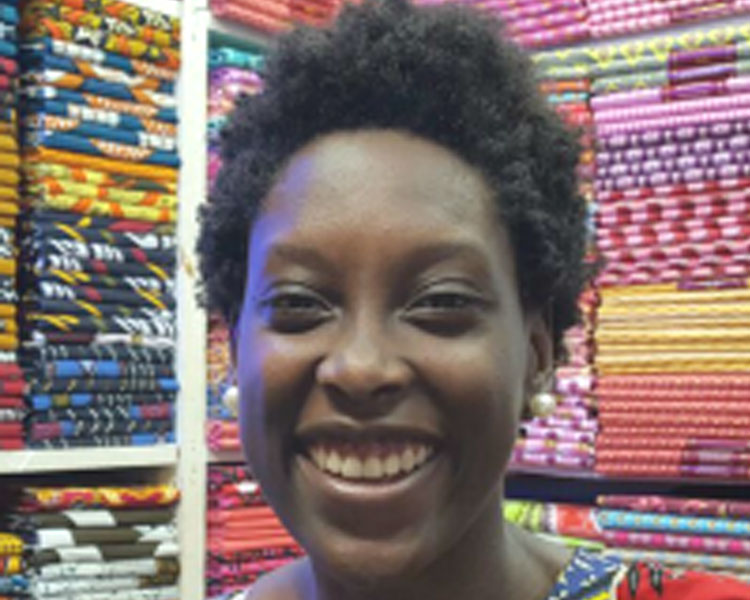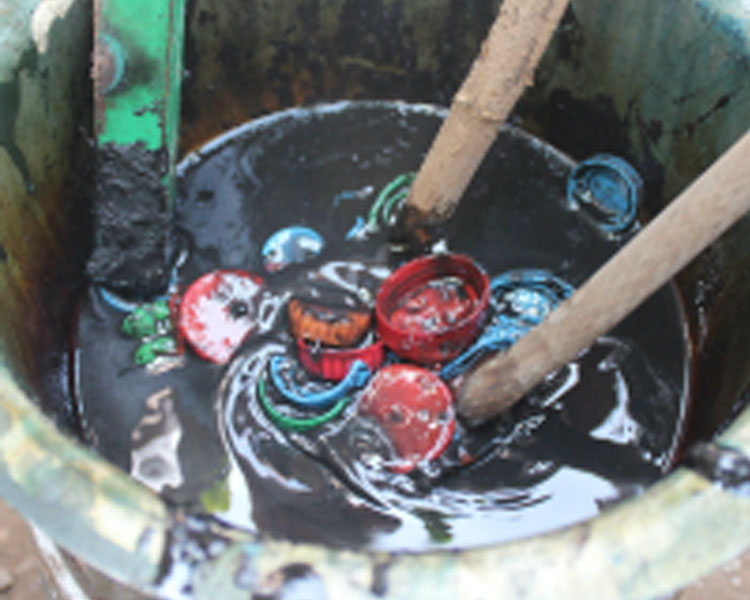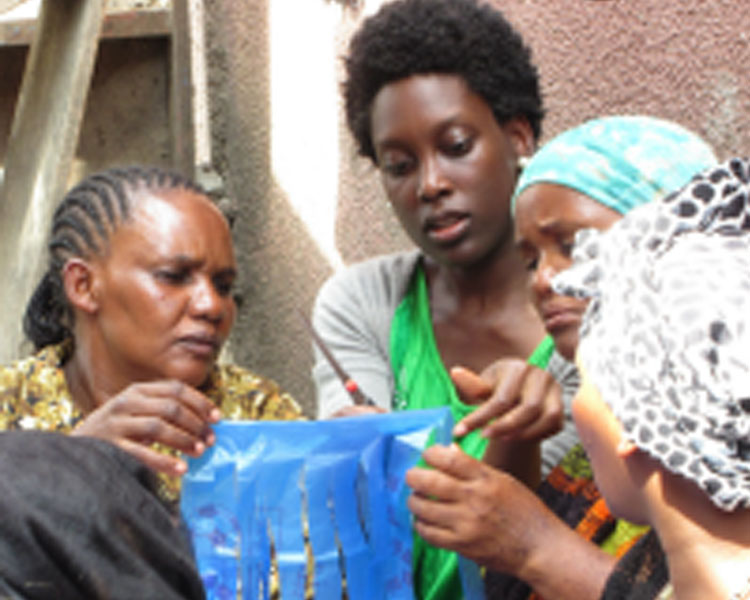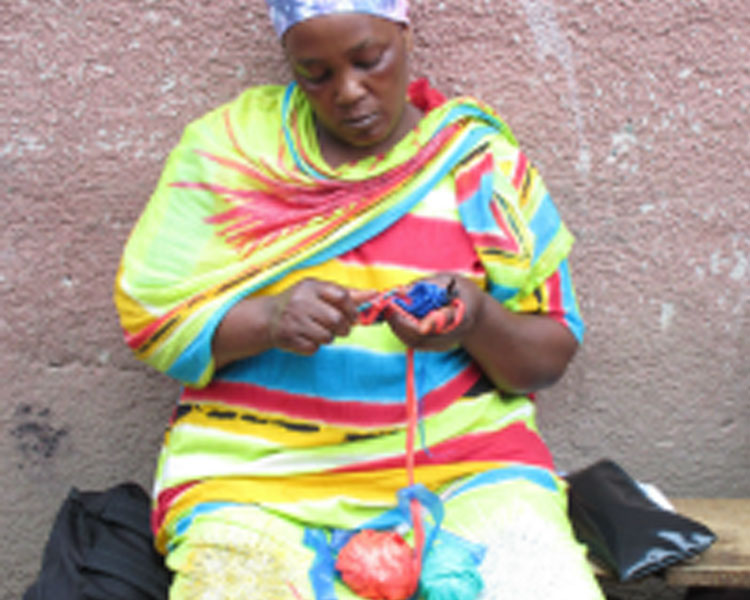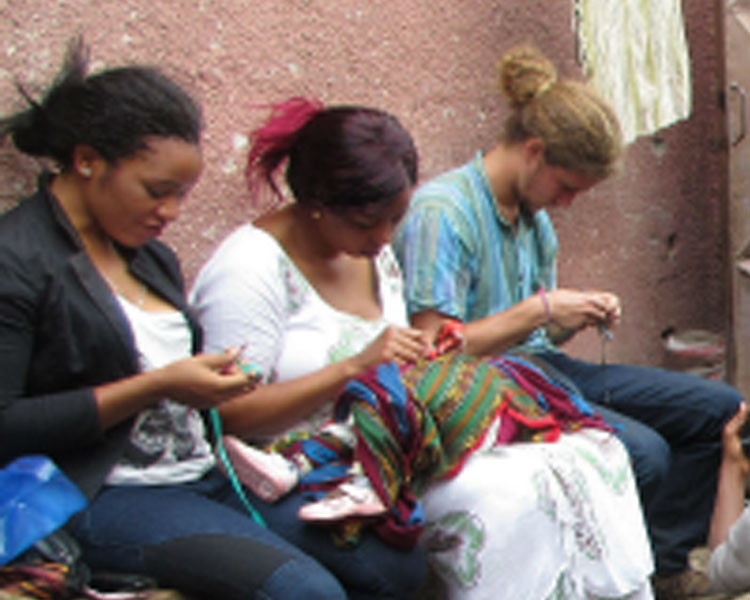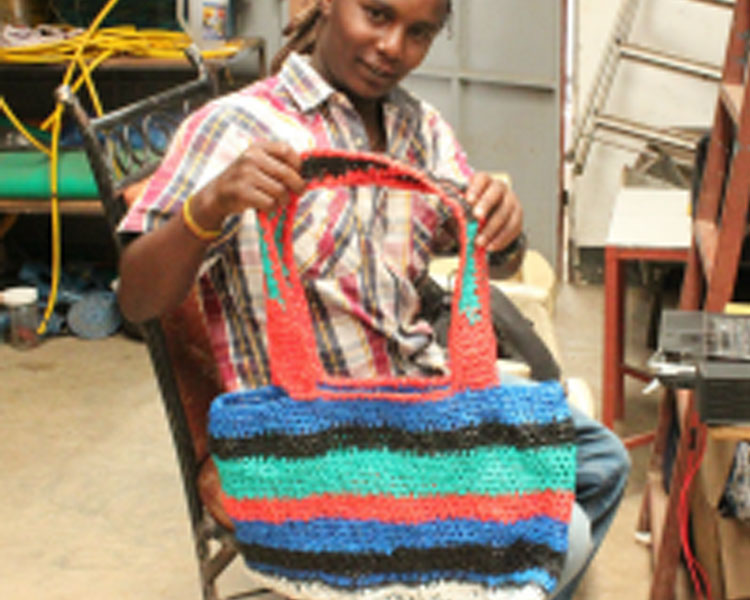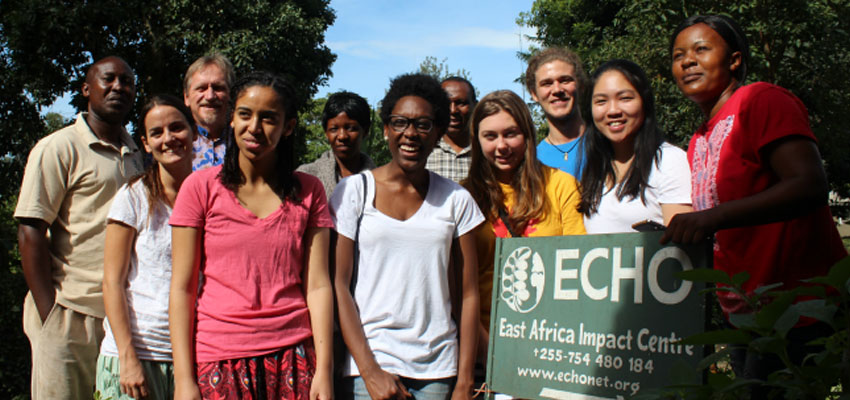
This past January, six members of the MIT D-Lab: Development class travelled to Arusha, Tanzania to work on a plastic bag waste management project. We had a wide diversity of cultures represented in our team with students of Argentinian, Ethiopian, Spanish, Chinese and Nigerian heritages. Our main partners were Echo East Africa Impact Center (ECHO) and Twende workshop.
We were asked to continue a project that entailed melting plastic bags in sand to produce paving bricks. Unfortunately, the existing project was labor intensive and produced toxic emissions. Our team sought to improve the plastic melting process as well as explore additional ways to recycle plastic bags without chemically altering them. We discovered that there was an existing crocheting tradition in Arusha and so we hoped to present plastic bags as an additional crocheting medium. In preparation for our trip to Tanzania, we conducted research and various experiments on plastic bag melting and crocheting.
Arrival in Tanzania and Melting Plastic Bags
Upon arrival, ECHO provided us with an orientation, which consisted of a crash course in Swahili and lessons on the history and culture of Tanzania. We then moved to the Twende workshop to begin work on our project. At Twende, we investigated different methods of melting the plastic bags while containing toxic emissions. We melted plastic bags in different mediums including sand, wax, and oil. We also used an oven method to melt the plastic bags. However, with this method it proved difficult to control the temperature and the oven exploded. We eventually settled on the method of melting the plastic bags in cooking oil. The cooking oil kept the melted plastic bags at a constant temperature and thus prevented the release of toxic emissions. We investigated different applications for the melted material and produced different products including a small bench, shoe soles, and jewelry.
Crocheting Plastic Bags
As Arusha is a tourist town, we hoped to produce a profitable woven plastic product to sell to the tourist market. We also developed a workshop curriculum that encouraged team building and creative design when working with plastic bags. We also discovered a method for cutting the plastic bags into yarn, which we documented in an instruction sheet and translated into Swahili. One team member, Carolyn, crocheted a basket to present to artisans and to our workshops. We led two different workshops with our main participants being women artisans who sold their goods to tourists. At the end of the workshop, participants showcased products they had crocheted from the plastic yarn such as jewelry and bags.
Tribulations and Trials
During the first week and a half of our project, we encountered a number of frustrations and delays. Our VOC sensor that was designed to monitor emissions broke, we struggled to find applications for the plastic melting project and a number of planned meetings with community members fell through. There was always the anxiety that we would be unable to make significant progress on our project as time was definitely not on our side. These frustrations unfortunately affected our team dynamics and thus during the first week there was a tension among us.
Victories and Moving Forward
One of our greatest achievements was getting to understand each other better as a team. Holding regular team meetings and having meals together, enabled us to learn about each other’s backgrounds and learn to give each other the benefit of the doubt. Accepting disappointment was also a big step for us. It enabled us to identify realistic parameters for our projects, document our steps and thus leave the project in a state that others could pick up from. As a result, Baraka, a student from the Arusha Technical College will continue work on the plastic-oil bricks and test their durability. In addition, previous participants from our crocheting workshop, staff members from Twende and Fernando, one of our team leaders who remained in Tanzania, co-led a crocheting workshop for 70 women after we left. Fernando and Twende are now exploring market opportunities for the crocheted products.
Food and fun
We discovered a breakfast joint close to the Twende workshop, with the yummiest chapatti and chai. We ate there every morning and on our last day the owner, Mama Jacqueline, graciously offered to teach us how to make chapattis. We always ate lunch with our friends at the workshop--it was a wonderful opportunity to get to know them. Most of the time, we chose to eat dinner at one of the local restaurants where we enjoyed the finest Arusha cuisine such as Nyama Choma and Chips Mayayi. In our downtime, we explored local markets, hiked to a waterfall, danced to Swahili Hip Hop at a concert, and visited the homes of local friends. A couple of us also went on safari to the Ngorongoro Conservation Area, which was a real treat.
